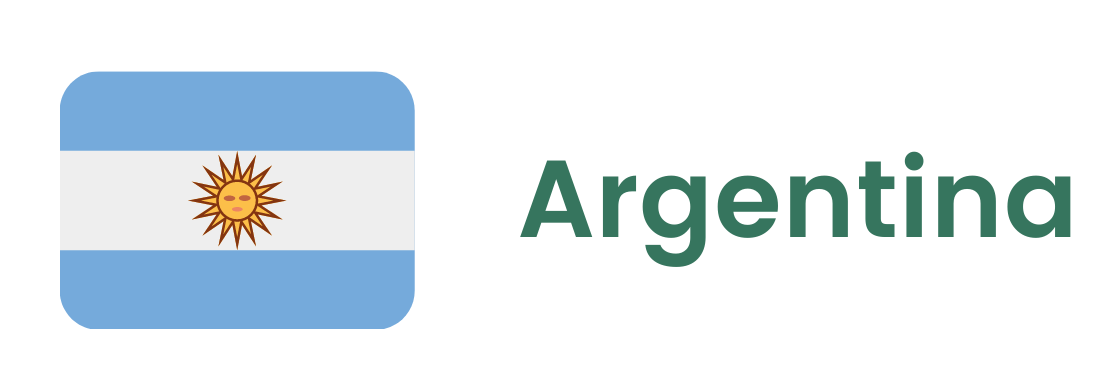Inflation in Argentina Dropped by 94 Percentage Points in 2024

Agricultural company Campo de Avanzada, from Córdoba Province, will not pay the last installment of Negotiable Obligations, in the amount of US$ 7.5 million. The company’s guarantor, Garantizar, will cover 100% of the amount owed to investors. (Campo de Avanzada; Reciprocal Guarantee Company Garantizar)
Inflation ended 2024 at 117.8%, a significant drop of 94 percentage points compared to the previous year. Disinflation was driven by policies from Javier Milei’s “Chainsaw Plan,” including subsidy cuts, privatizations, and the relaxation of economic regulations. The government recorded a primary surplus of 1.9% of GDP and an economic contraction of 3.5%. (Indec; IMF)
The country is facing a wave of heat that will damage the soybean and corn seasons, with temperatures expected to be between 36ºC and 40ºC, aggravating the drought since December. (Consultancy of Applied Climatology)
A new vaccine was approved for bovine herpesvirus (BoHV-1), which causes respiratory diseases, abortion and other problems in cattle (Tecnovax SA; INTA)
In December 2024, corn exports reached an all-time record of 2.5 million tonnes, driven by strong international demand. This volume was the highest for the month of December since records began, reflecting an increase in domestic trading, with 3 million tonnes sold. In addition, the price of corn rose by 8% compared to the previous month. (Bolsa de Comercio de Rosario, Infobae)
Production estimates was reduced for soybean and corn due to the prolonged drought.. Soybean production has been revised to 28 million tonnes, while corn production has been adjusted to 38 million. (Rosario Stock Exchange)

In 2024, Brazil exported over 1 million tonnes of fruits, generating revenue of US$1.287 billion, a growth of more than 3% in value compared to the previous year. Mango led the ranking with 258,000 tonnes exported, generating US$ 348 million, a 12.14% increase in value. (MDIC; Abrafrutas)
CNH Industrial announced Luis Abreu as the new Chief Information Officer of the company. (CNH)
Cotrijal, the largest ag cooperative in the State of Rio Grande do Sul, ended 2024 with a revenue of US$ 882.88 million, a 7% decrease compared to the previous year. (Cotrijal)
Brazil’s soybean harvest got off to a slow start, with the State of Mato Grosso State harvesting just 0.5% of the area by the first week of January, the lowest rate in seven years. Rainy weather is hampering the harvest and negatively impacting the corn window. (AgRural)
Federation of Rice Growers Associations of the State of Rio Grande do Sul and the Federation of Agriculture of the State of Rio Grande do Sul contested the rice harvest figures released by Conab. The entities emphasized that the planted area increased by 2.69% in 2024, not 9.7% . They assured that Brazil will produce more rice than it consumes, with no risk of shortages. (Federarroz; Farsul)
According to the president of the Brazilian Association of Cotton Farmers, Gustavo Piccoli, cotton production in Brazil is expected to grow by 5.8% in 2025, reaching 3.91 million tonnes, with an increase of 6.6% in the planted area, to 2.12 million hectares. (Abrapa)
Brazil’s coffee exports reached a historic record of 50.4 million bags, generating US$ 12.5 billion, a 55% increase compared to 2023. The rise was driven by high prices, particularly in Europe, which accounted for 43% of the exports. 2025 Brazilian coffee harvest is expected to reach 53.2 million bags, a drop of 6.8% compared to 2024, with arabica coffee production falling by 11.2%, and the cane coffee harvest will rise by 3.4%, to 17.6 million bags. (IBGE; Cecafé)
BRF has acquired 26% of Addoha Poultry Company, a Saudi Arabian poultry company, with an investment of US$ 84.3 million. (BRF)
Re.green startup entered into an agreement with Agro Penido to recover 600 hectares in the Amazon region with native species, generating carbon credits. The project could generate 300,000 credits over the coming decades. (Agro Penido; Re.green)
In January 2025, approximately 1.3 million hectares of soybean in the State of Mato Grosso do Sul (29% of the total area) are affected by water stress. (Aprosoja/MS)
Copacol has inaugurated a new Grain and Input Unit in Penha, Corbélia (PR), with an investment of approximately US$ 20.5 million. The facility covers 13,800 m², with a storage capacity of 103,500 tonnes across nine silos, two buffer silos, two dryers with a capacity of 200 t/h, and a 2,500 m² input storage area. (Copacol)
Brazilian orange juice exports dropped by 19.7% in volume shipped between July and December of the 2024/25 harvest, totaling 430,078 tonnes, while revenue increased by 42.66%, reaching $1.87 billion, driven by higher prices and supply reduction. (CitrusBR; Secex)
Women lead the production of assaí, which has grown 50% in the last 10 years, contributing US$ 244,642 annually. The State of Pará accounts for 94% of Brazil’s assaí production, which is exported for food and cosmetics markets. (Emater; Government of Pará)

![]()
Cherry exports recorded a historic increase of 59%, reaching nearly 658,000 tonnes shipped to China due to the Chinese New Year. More than 90% of the cherries exported go to China, and the abundance of the product led to a drop in prices. (National Agricultural Society of Chile)
![]()
Secretariat of Agriculture has supported more than 24,000 corn farmers with measures to face economic and climatic challenges. (Secretaria de Agricultura y Desarrollo Rural)

![]()
4,123,976 tonnes of yellow corn was imported in 2024, a 17.14% increase compared to the previous year. Argentina was the main supplier, with 4,080,643 tonnes, accounting for 98.95% of the total. (Ministry of Agriculture)
![]()
The import of animal products and by-products from Germany and Israel is temporarily suspended following the detection of Foot and Mouth Disease in these countries. The suspension will be re-evaluated depending on the evolution of the cases and information from the veterinary services of the affected countries. (Ministry of Livestock, Agriculture and Fisheries)
The demand of farm leasing increased by 10% compared to the previous year. The ag sector is looking for greater flexibility in contracts due to rising production costs and a shortage of available land. (Ganadera del Norte)
Sheep meat exports grew by 3% in 2024 to US$ 408 million, driven by demand from China, which remains the main market. (Uruguayan Wool Secretariat)

READ MORE:

